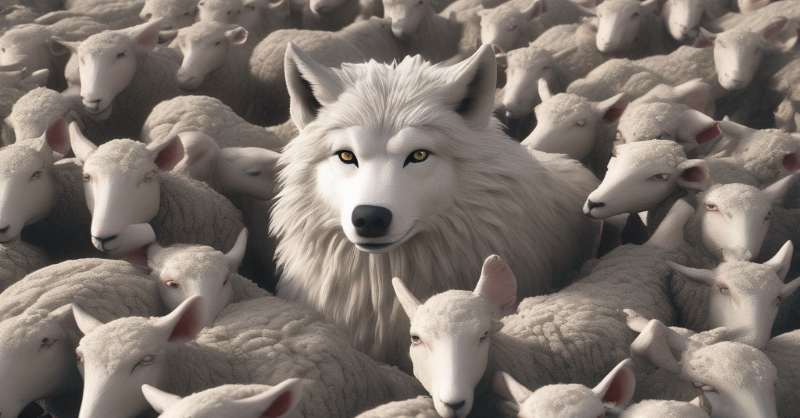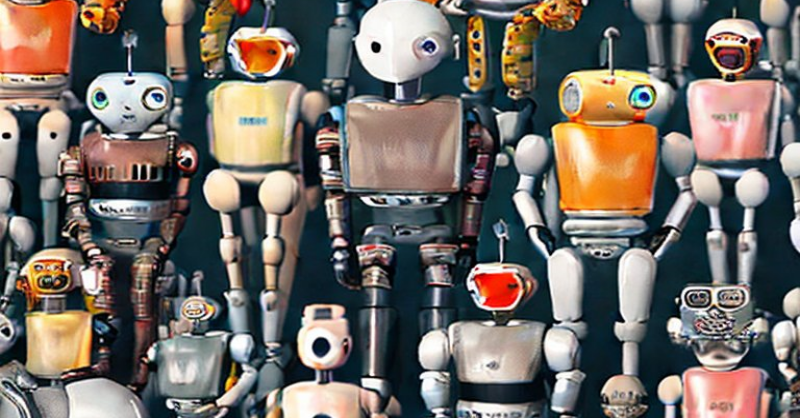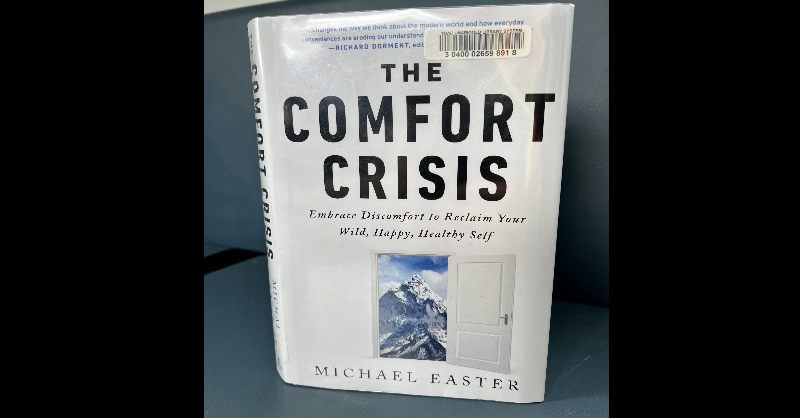If you're refusing to
see Barbie because you heard it's a hyper-woke, ultra feminist
movie about fighting the patriarchy, you might be listening to
conservative commentators who are putting too much emphasis on the
film's dialogue and it's purposely exaggerated take on feminism. The
movie is definitely laced with hyperbolic monologues and quips about
the struggles of women, but much of it is meant to be satirical and
the real lessons exist between the lines. By the end of the movie,
we're left with something that more closely resembles an
old-fashioned view on womanhood and equality.
The director and her
partner deserve credit for building a smart and entertaining story
around a plastic doll. They also deserve credit for getting people on
both sides of the political fence to talk about it. On both sides,
people have ignored certain elements of the movie, or may not have
picked up on some of the metaphors. However, unlike Calvin Candie
(Candy) in Django Unchained being killed by a dentist, or
Prometheus and its parallels to Judeo-Christian creationism, much of Barbie's
metaphors and messages seem far less subtle.
I won't lie, there were
parts of this movie where I rolled my eyes so hard they must have
made a sound, because my wife turned to look at me. She grinned,
knowing exactly what I was thinking. In one scene halfway through the
movie, one of the female protagonists (America Ferrera) delivers a
monologue about the difficulties of being a woman in the real world.
It goes on for too many paragraphs to publish here, but ends with her
saying, “You [women] have to never get old, never be rude, never
show off, never be selfish, never fall down, never fail, never show
fear, never get out of line. It's too hard! It's too contradictory
and nobody gives you a medal or says thank you! And it turns out, in
fact, that not only are you doing everything wrong, but also
everything is your fault.”
After that part, I
turned to my wife and whispered, “Sounds like being a man.”
All men have similar
struggles. We have expectations to live up to that sound a lot like
what Ferrera's character describes in her rant. However, since this
movie is called Barbie and it's geared toward women, I
shouldn't have expected anything less. This is a movie about women,
for women. If I wanted to hear about men's struggles, I would have
watched an Andrew Tate video or listened to Jordan Peterson.
This is where a lot of
men will make mistakes when assessing this movie. What did you
expect? A part of the film's genius is how it stays true to the whole
concept of the plastic doll, while poking fun at itself throughout.
As a man agreeing to watch this movie, you're entering the lion's
den. It's not your domain anymore, so you should deal with it and
judge it accordingly. By the end of it, however, you should feel
better about the movie and its message.
The Danger Of
Extremes
Ken lives in a pure
matriarchy. He lives in a pink world where women rule everything and
where men sit on the sidelines, competing for every Barbie's
attention. In Barbieland, Ken doesn't matter. He is subservient to
all the different Barbies and has absolutely no influence whatsoever.
Ken is a an expert at “beaching” and nothing else. As the movie
states clearly, “Ken only has a good day when Barbie looks at him.”
If you judge this movie
by its overt dialogue alone, you will miss the overall story that's
being told by Greta Gerwig and her partner, Noah Baumbach.
As the story
progresses, Ken sneaks into the real world with Barbie to find the
girl who is playing with her—and who is responsible for making her
less perfect and less stereotypical. In the real world, Ken discovers
patriarchy, which starts to confuse him because it's not full
patriarchy. He notices that everyone, particularly women, respect
him. One woman even asks him the time, which is foreign to him. No
Barbie would ever ask Ken what time it is in Barbieland, because men
don't know anything.
In Barbieland, every
night is girl's night!
Mesmerized by this
patriarchal system where men actually get respect and attention from
women, Ken takes it back to Barbieland. Upon returning to her home
world with her newly found owner, Barbie is horrified to find that
Ken and all the other Kens have turned Barbieland into a full-blown
patriarchy. All the Barbies have been brainwashed into subservient,
beer-serving housewives and all the Kens have turned their pink
mansions into man caves—leaving Barbie depressed and in tears.
If you pay attention to
the story, you'll see what the root cause of Ken's actions are.
Proving it was intentional, the writers address it near the end of
the movie and in another scene where Ken breaks down and accuses Barbie of failing him.
It's an age-old tale of neglected men who seek comfort, strength and acceptance from things
that can be extreme and harmful. Coming from a pink matriarchy, Ken
found patriarchy appealing because it offered him all the things he
could never have in Barbieland. Barbie's extreme matriarchy drove the
Kens to an extreme opposite. One extreme created another.
It's also important to
note that Ken was unsatisfied with the patriarchy of the real world
and sought to “do it right” when he returned to Barbieland.
Love, Motherhood,
Identity, Being Human
In a musical montage,
Ken sings, “Where I see love, she sees a friend.” This plays into
the concept of his rejection by Barbie. Some may also say the
Ken-Barbie relationship somewhat echoes Freudian aspects of a negative mother-son relationship. I didn't get that vibe, but I can see how
some might. It would fit the film's encompassing message about
motherhood.
When men face
rejection and neglect, they lash out and turn to darkness. That's a reality the writers make obvious,
but not obvious enough for some more radical feminists who might view
Ken's story as one about male fragility. That term is somewhat
pejorative, but Ken does also sing about “blonde fragility” in
his montage. Whether the filmmakers intended that to be a reference
to the hateful concept of “male fragility” is open for debate,
but—when the clear satirical elements are set aside—the overall
message of the film doesn't appear hateful toward men.
The Mattel patriarchy, led by Will Ferrell, admits to never caring about Ken.
Most hand-wringing
feminists probably found the film satisfying and highly critical of
men, but I found it empathetic. I found the film equally critical of
a demeaning, anti-male and hyper-feminine world. For the more
sensible audiences that can read between the lines and pick up on the
deeper elements of the plot, the movie clearly rejects extremes and
aims for equilibrium.
Motherhood is a major
theme throughout the movie. Among some of America Ferrera's feminist
complaints, she touches on being a mother. She tells the Barbies that
it's ok to be a mom, without having to be a dentist, doctor, or a
CEO. By the end, motherhood becomes a part of Margot Robbie's
character arc.
When it was all over, I
wondered whether the filmmakers used extreme satirical elements of
feminism to reel in certain people, only to teach them a valuable
lesson about the realities of being a biological woman. (The film has a transgender actor, but doesn't really spend time on the ideology.)
The difficulties and
struggles of being human are a major theme in this movie. Neither Ken or
Barbie knew what they were about to experience when they entered the
real world. Neither had an identity and both were designed to fit
into an ideal world they had no control over. They only existed to
please someone else. They had no autonomy and no purpose. By the end,
Barbie tells Ken to find his own identity and to—basically—quit
being a simp.
In many ways, Barbieland is a matrix.
The Ending
The end of this movie
wraps up what turns out to be an old-fashioned story about womanhood
and classic equality. The outcome of the story ends on a reasonable,
less radical note than what the movie starts with. What is a
deliberately over-the-top and ridiculous movie gets brought down to
Earth. One of the last scenes between Barbie and her inventor could
even be called profound.
Once Barbie's world is
restored, the president of Barbieland, a black woman, gives men more
power and Barbie vows to quit making every night girl's night. She
even apologizes to Ken for not loving him and for treating him badly.
By the end, it becomes
clear that neither extreme matriarchy, or extreme patriarchy, are
good things. After they experience the horrors of servitude, the
Barbies change their views and realize the error of their ways. In Barbieland, prior to Ken's revolution, the Barbie's
were forced to fit the ideals and identities that were assigned to
them. The Kens were second-class citizens designed to exist as props
in Barbie's world, while the Barbies were unable to experience one of
the most profound and meaningful realities of womanhood.
The movie is really all
about Barbie's final choice.















